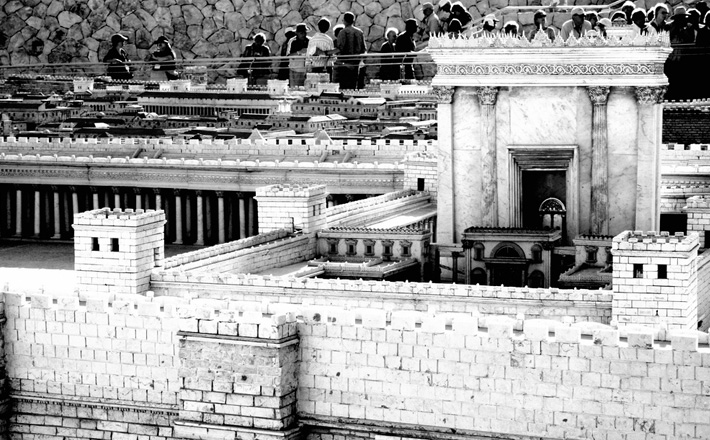Commentary on Psalm 98
It was Dorothy Day who wrote, “Whenever I felt the beauty of the world in song or story, in the material universe around me, or glimpsed it in human love, I wanted to cry out with joy. The Psalms were an outlet for this enthusiasm…”1
While the well-known Catholic writer was addressing the Psalms generally, one has to wonder if she had specific Psalms, such as Psalm 98, in mind.
A Common Praise
Psalm 98 summons the world to burst forth in an enthusiastic expression of praise to YHWH. This Psalm contains phrases, statements, and structural similarities to a number of other Psalms. Commonalities such as this suggest that this Psalm comprises a small part of a larger whole: a common tradition of praise.2
Like Psalm 96, Psalm 98 encourages the praise of YHWH and gives specific reasons why YHWH is to be praised. Like Psalm 100, Psalm 98 repeats this pattern twice. The first clause in verse 1 encourages praise, and the following verses (1b-3) provide rationale for why praise is to occur. Verses 4-9a encourage praise yet again, and the final clause in verse 9 gives specific reasons for praise. Finally, like Isaiah 40-55, Psalm 98 focuses on YHWH’s deliverance of Israel (verse 2-3), and that YHWH is coming to judge the earth with truth and with equity (verse 9).
A Cosmic Praise
An enthronement Psalm, Psalm 98 also emphasizes that the reign of YHWH is sovereign. It has been promoted over the whole of the earth, and therefore, the praise of YHWH is to be cosmic in nature. It is to come from all nations (verse 2-3); indeed, this praise is to come from the whole of creation (verse 7-8).
The touchstone for this praise is demonstrated in YHWH’s protection and provision of Israel in significant events at the Red Sea, in Canaan and Assyria, and with the fall of Babylon.3 Since all the nations and the whole of the earth witnessed YHWH’s victories in these public events, the cumulative result will be a public and cosmic praise. Such praise will include people chanting to musical instruments and audible sounds from the sea, the floods, and the hills (verse 4-8). Both the “human orchestra” and the “orchestra of nature” will provide “a grand fanfare for God the king.”4
Preaching the Psalm
In the present liturgical landscape, where congregations and denominations tend to focus on liturgical differences rather than similarities, the common tradition of praise that Psalm 98 reveals is not insignificant. This Psalm reminds us that our worship of God is rooted in a common liturgical heritage: the praise of Israel. While our worship practices may look different, the liturgies we offer and the worship gatherings in which we participate are directed to the sovereign, victorious God who governs the whole of creation. The rule of this God is too vast, it is too expansive to be confined to any single expression of praise: human or natural.
This Psalm also reminds us that the salvation we proclaim and celebrate today is deeply rooted in the Jewish tradition (John 4:22). Here, we are reminded, “the church can never grow out of or escape its indebtedness to the Jewish people.” In other words, “YHWH’s relationship with Israel remains the model for YHWH’s relationship with the church.”5 We would do well to celebrate the mosaic of liturgies before us, each directed toward the same God. And, we would do well to focus on our common heritage of praise with Christians past, present, and future.
Finally, and perhaps most importantly as we approach the end of the liturgical year, Psalm 98 reminds us that God is coming. When God does come, in the words of a familiar Psalm 98 paraphrase by Isaac Watts, God will “rule the world with truth and strength” and all nations will prove “the glories of his righteousness and wonders of his love.”
1Dorothy Day, The Long Loneliness (San Francisco: Harper and Row Publishers, 1952).
2John Goldingay, “Psalm 98,” in Psalms, Volume 3: 90-150, ed. Tremper Longman, III, Baker Commentary on the Old Testament Wisdom and Psalms (Grand Rapids, MI: Baker Academic, 2008), 120.
3Ibid., 120-121.
4Robert Alter, The Book of Psalms: A Translation with Commentary (New York: Norton, 2007), 345.
5Goldingay, Psalms, 124.


November 17, 2013